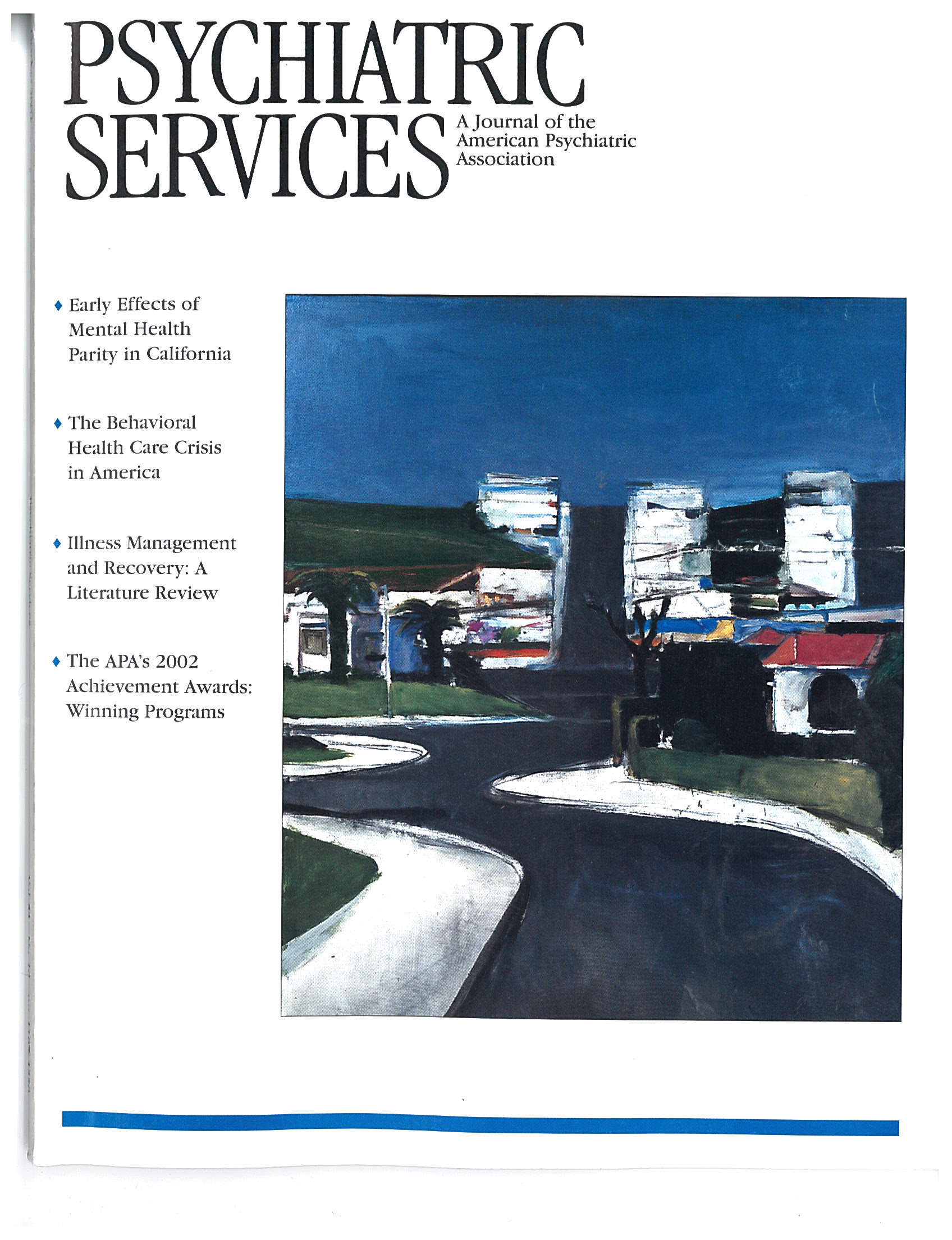Borderline Personality Disorder, Suicide, and Pharmacotherapy
To the Editor: In a review article in the June 2002 issue, Dr. Paris (1) reported that suicide is relatively common among patients who have borderline personality disorder and made recommendations about the assessment of acute versus chronic suicidality, the role of hospitalization in the treatment of these patients, and the management of suicide risk among outpatients with this disorder (1). It is notable that the review made no mention of the role of psy-chiatric medications in preventing suicide among these patients.
The literature on the role of psychiatric medications in the management of borderline personality disorder is sparse compared with the literature on psychotherapeutic interventions (2). However, it is common for patients with this disorder to be taking several medications. Because these patients may experience chronic depression, mood instability, and symptoms of psychosis, clinicians use antidepressants, mood stabilizers, and antipsychotic agents, alone or in various combinations, to try to manage the symptoms of the disorder.
Antidepressants and lithium have been shown to reduce the risk of suicide among patients with depression and bipolar disorder (3). Recently, several studies have found that clozapine is effective in reducing psychosis, self-injurious behavior, and the length of hospital stays among patients with borderline personality disorder (4). These findings are intriguing, because clozapine has also been found to reduce the risk of suicide among patients with schizophrenia (5).
None of the studies cited here specifically state that a given medication or class of medication reduces the risk of suicide among patients with borderline personality disorder. However, I believe it is reasonable to extend the findings on pharmacotherapy for affective and psychotic disorders to borderline personality disorder because patients with this disorder often have comorbid axis I disorders. If these disorders are accurately diagnosed and appropriately treated, then the risk of suicide among patients who have borderline personality disorder should be reduced.
Although the literature on pharmacologic treatments for patients with borderline personality disorder is not technically strong, Dr. Paris would have done well to recognize the potential utility of psychiatric medications in managing the risk of suicide among patients with this disorder.
Dr. Parker is associate professor of clinicalpsychiatry at Indiana University School of Medicine in Indianapolis.
1. Paris J: Chronic suicidality among patients with borderline personality disorder. Psychiatric Services 53:738-742, 2002Link, Google Scholar
2. Soloff PH: Psychopharmacology of borderline personality disorder. Psychiatric Clinics of North America 23:169-192, 2000Crossref, Medline, Google Scholar
3. Angst F, Stassen HH, Clayton PJ, et al: Mortality of patients with mood disorders: follow-up over 34-38 years. Journal of Affective Disorders 68:167-181, 2002Crossref, Medline, Google Scholar
4. Parker GF: Clozapine and borderline personality disorder. Psychiatric Services 53:348-349, 2002Link, Google Scholar
5. Walker AM, Lanza LL, Arellano F, et al: Mortality in current and former users of clozapine. Epidemiology 8:671-677, 1997Crossref, Medline, Google Scholar



